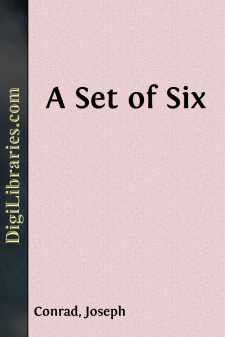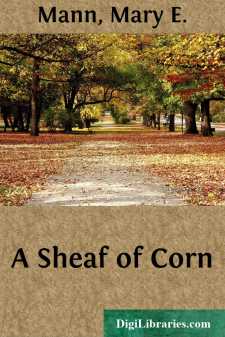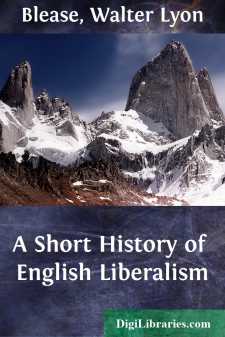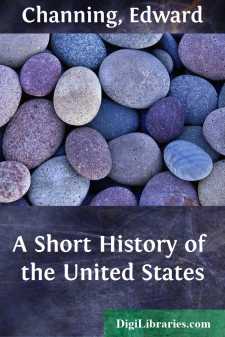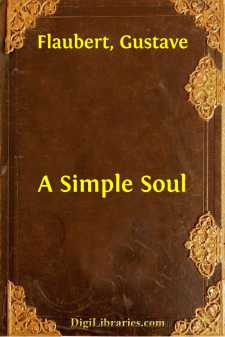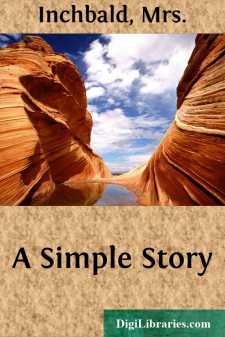Fiction
- Action & Adventure 180
- Biographical 15
- Christian 59
- Classics 6965
- Coming of Age 5
- Contemporary Women 3
- Erotica 8
- Espionage/Intrigue 12
- Fairy Tales, Folklore & Mythology 236
- Family Life 169
- Fantasy 117
- Gay 1
- General 596
- Ghost 32
- Historical 808
- Horror 43
- Humorous 160
- Jewish 25
- Legal 4
- Medical 22
- Mystery & Detective 315
- Political 49
- Psychological 41
- Religious 64
- Romance 159
- Sagas 11
- Science Fiction 730
- Sea Stories 113
- Short Stories (single author) 537
- Sports 10
- Suspense 1
- Technological 8
- Thrillers 2
- Urban Life 31
- Visionary & Metaphysical 1
- War & Military 173
- Westerns 199
Fiction Books
Sort by:
by:
Joseph Conrad
AUTHOR'S NOTE The six stories in this volume are the result of some three or four years of occasional work. The dates of their writing are far apart, their origins are various. None of them are connected directly with personal experiences. In all of them the facts are inherently true, by which I mean that they are not only possible but that they have actually happened. For instance, the last story...
more...
by:
Mary E. Mann
WOMEN O' DULDITCH Dinah Brome stood in the village shop, watching, with eyes keen to detect the slightest discrepancy in the operation, the weighing of her weekly parcels of grocery. She was a strong, wholesome-looking woman of three- or four-and-forty, with a clean, red skin, clear eyes, dark hair, crinkling crisply beneath her sober, respectable hat. All her clothes were sober and respectable,...
more...
THE SHEPHERD AND THE BIBLEDan'l Burdon, the treasure-seeker—The shepherd's feeling for the Bible—Effect of the pastoral life—The shepherd's story of Isaac's boyhood—The village on the WylyeOne of the shepherd's early memories was of Dan'l Burdon, a labourer on the farm where Isaac Bawcombe was head-shepherd. He retained a vivid recollection of this person, who had...
more...
CHAPTER I This book attempts to trace the varying but persistent course of Liberalism in British politics during the last hundred and fifty years. It is not so much a history of events as a reading of them in the light of a particular political philosophy. In the strict sense a history of Liberalism should cover much more than politics. The same habit of mind is to be discovered everywhere else in the...
more...
PREFACE. An attempt to present to students a succinct history of the course of French literature compiled from an examination of that literature itself, and not merely from previous accounts of it is, I believe, a new one in English. There will be observed in the parts of this Short History a considerable difference of method; and as such a difference is not usual in works of the kind, it may be well...
more...
by:
Edward Channing
CHAPTER I THE EUROPEAN DISCOVERY OF AMERICA Leif Ericson. 1. Leif Ericson discovers America, 1000.--In our early childhood many of us learned to repeat the lines:--Columbus sailed the ocean blueIn fourteen hundred, ninety-two.Leif discovers America, 1000. Higginson, 25-30; American History Leaflets, No. 3. We thought that he was the first European to visit America. But nearly five hundred years before...
more...
CHAPTER I Guardianship.The age of legal capability for the Roman woman was after the twelfth year, at which period she was permitted to make a will. However, she was by no means allowed to do so entirely on her own account, but only under supervision. This superintendence was vested in the father or, if he was dead, in a guardian; if the woman was married, the power belonged to the husband. The consent...
more...
On the northern shore of Sicily are still to be seen the magnificent remains of a castle, which formerly belonged to the noble house of Mazzini. It stands in the centre of a small bay, and upon a gentle acclivity, which, on one side, slopes towards the sea, and on the other rises into an eminence crowned by dark woods. The situation is admirably beautiful and picturesque, and the ruins have an air of...
more...
by:
Gustave Flaubert
CHAPTER I For half a century the housewives of Pont-l'Eveque had envied Madame Aubain her servant Felicite. For a hundred francs a year, she cooked and did the housework, washed, ironed, mended, harnessed the horse, fattened the poultry, made the butter and remained faithful to her mistress—although the latter was by no means an agreeable person. Madame Aubain had married a comely youth without...
more...
by:
Mrs. Inchbald
A Simple Story is one of those books which, for some reason or other, have failed to come down to us, as they deserved, along the current of time, but have drifted into a literary backwater where only the professional critic or the curious discoverer can find them out. "The iniquity of oblivion blindly scattereth her poppy;" and nowhere more blindly than in the republic of letters. If we were...
more...


